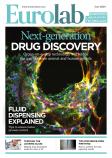Congenica, a clinical interpretation partner for the UK 100,000 Genomes Project, has announced that its whole genome analysis platform Sapientia is detecting clinically relevant variants in more than 35% of diagnostics reports returned to the NHS Genomic Medicine Centres (GMCs) for the Pilot and Main Phase studies. The anticipated diagnostic rate for such a large population study would be closer to 25%*.
The UK 100,000 Genomes Project is a UK large-scale genomic project aiming to sequence and analyse the genetic information of NHS patients affected by cancers or rare diseases. Genome interpretation software analyses a participant’s genome sequence, to support clinicians in identifying the likely cause of someone’s rare disease.
Tom Weaver, CEO of Cambridge-based Congenica, is delighted that its technology is reaching patients, and says: “One of the aims of Genomics England is to enable NHS patients to gain early benefit from advances in genomics and through participation in the UK 100,000 Genomes Project we have been able to accelerate development of our Sapientia diagnostic platform.”
This high diagnostic yield makes Sapientia a reliable and efficient tool used in clinical settings by genomic centres around the UK.
Dr Simon Ramsden, lead geneticist for the Manchester Centre for Genomic Medicine (MCGM), is using Sapientia to scale its operation to accommodate an explosion in genomic analysis.
He says: “What Sapientia does is give us a format: it is a web-based tool where we can take our data, compare it to what's out there in the world, and support the clinicians to come up with a diagnosis.”
Dr Ramsden is speaking at a symposium that Congenica is hosting at the Annual Meeting of the American Society of Human Genetics on October 20th from 13:00-14:30 in Room 9 of the East Building of the Vancouver Convention Centre. The symposium will include talks from experts in clinical genomics with first-hand experience of using Sapientia and its impact on patient diagnosis.
* Effectiveness of WES and cost of traditional diagnostic trajectory in children with ID (Monroe et al. Genetics in Medicine, 2015)









